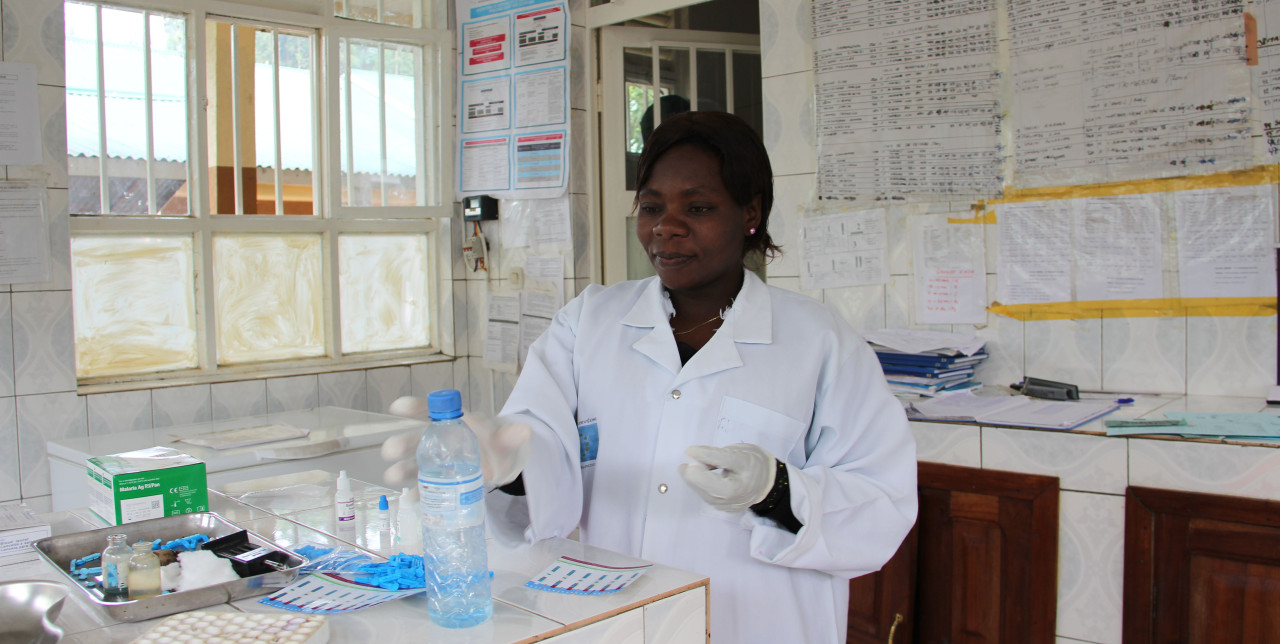15-03-2018 | di COOPI
How does the drug supply chain work?
In the Democratic Republic of Congo, and particularly in the North Kivu Province, COOPI is carrying out a project financed by AICS (the Italian Agency for Development Cooperation) on the supply of medicines to health centres in Rubaya, Ngungu and Kibabi.
The aim is to provide and improve access to medical care for local and displaced populations in the health zones of Kitotshe and Masisi, namely the sick, pregnant women, malnourished children and victims of sexual and gender-based violence. 19,817 persons have benefited from a medical consultation, between November and December 2017.
Monthly supply
On the first day of each month, head nurses and pharmacists of the three health centres, in collaboration with COOPI staff, prepare and send a monthly request of medicines and other medical devices to the COOPI pharmacist, who checks and verifies such requests. In case they fulfill the needed requirements, they are validated by the COOPI medical coordinator. By the fifth day of each month, the COOPI pharmacist has packed and sent the products to the three health centres.
Possible extra and/or urgent orders follow the same checking procedure and are fulfilled as soon as possible in order to avoid shortages. Throughout the project, none of the health centers has reported shortages of the ten essential medicines requested and sent through the COOPI mechanism.
Monitoring the correct management of DRUGS
Monitoring and drug management is carried out by COOPI staff (pharmacist, nurses and doctors). Located at the three health centres, COOPI staff checks the correct usage of these drugs by health personnel, and compile inventory cards for logistic/administrative management and their storage in suitable environments.
COOPI grant manager in DRC, Caterina Michelini explains: «There is a good collaboration between the staff of the facilities and COOPI staff. The steady improvement of skills within the health centres is a fundamental activity to ensure the sustainability of the intervention and the resilience of populations once COOPI leaves.»
.png)
The project - financed by AICS and started in November 2017- aims to guarantee medical care for 33,000 people, achieving this by May 2018.




 Dem. Rep. of Congo
Dem. Rep. of Congo